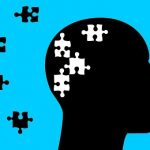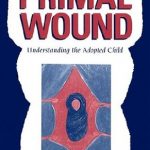Consciousness and Awareness

When we consider the consciousness and awareness we develop while inside the womb, the pro-abortion claims that babies are just a clump of cells or that they have no rights unless their mother says so are further exposed for having no merit. [Those positions already have no merit based on the truths from God, but Miscarriage Moms For Life encourages publishing experiential and scientific verification of God’s truths.]
The various Pain Capable legislations under consideration suggest that fetuses are capable of feeling pain by week 20 and should not be aborted after that point. Miscarriage Moms For Life believes human babies can feel pain—especially the pain of their death—in less than eight weeks from the time their new strand of DNA was formed. It was this discussion that afforded M.P. the opportunity to provide scientific research (such as Tridimensional Visualization…) that puts their capacity to feel pain before the end of the first trimester and other research that speaks to the potential for their consciousness and awareness (read Personhood Stories).
To consider the implications of this topic as related to grief, read our book, Other Side Of Grief.
Our “primitive brain” or
Continue reading...Swedish neuroscientist Bjorn Merker, in his studies of the origination of consciousness, noted several children with hydranencephaly (having brain stems but no cerebral cortex) in a social setting appearing to be aware and alert, reacting to their environment with tears, fussiness, smiles, and laughter. (See Article Review-The First Ache.) While it is easy for us to confirm the consciousness and awareness of those whom we see and interact with, it may be more difficult for most people to accept that embryos have an awareness about them. Perhaps science will one day be advanced enough to validate this, but not everything that is yet to be validated is untrue. (See Mysteries Miracles and Faith.)
Scientific knowledge is expanding, and there are doubtless additional sources available.
Miscarriage Moms For Life believes that the murder of children is wrong—whether or not they feel the pain of their executions, whether or not they have consciousness or awareness, and whether or not they are still in the womb. We welcome both scientific AND experiential evidence of the personhood of gestational children and encourage you to share either of them with us. (M.P., we will gladly put your name in this article if you choose.)
For more on this subject, read the book, When Unborn Babies Speak, available in print and ebook on Amazon or Amazon Smile, where you may designate Miscarriage Moms For Life as the charity to receive funds from Amazon with each purchase.
To honor the life of your child and find comfort, read our book, Other Side Of Grief.
